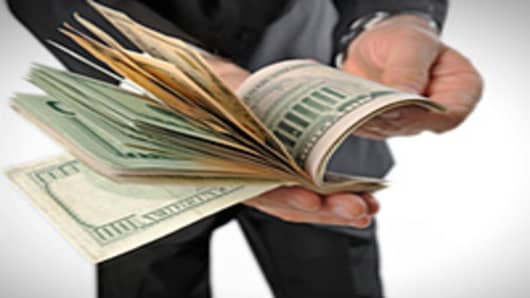Since the only thing that matters to most members of Congress is the subsequent election cycle, it would seem most likely that another bill will be passed to prevent the federal spending cuts and to extend the tax cuts once again, but one never knows. The bitterness between the parties, together with the election results, could indeed push us over the so-called fiscal cliff.
For income-seeking investors, TheStreet recently covered the significant tax implications that will affect investors unless Congress extends the tax cuts, as well as several choices to maximize dividend income under various scenarios.
KBW’s “base-case economic outlook” assumes that Congress and the president will take the necessary actions to avoid the “fiscal cliff,” but Cannon said that even under that “even if the ‘fiscal cliff’ is addressed by Congress, we believe that the December debate on the issue will be negative for consumer confidence and will slow spending.” After that, assuming that we don’t fall off the “fiscal cliff,” KBW expects the economy to “[reaccelerate] in 2013, ending the year with 2.2 percent (gross domestic product) growth and the unemployment rate at 7.3 percent.”
“Under the ‘fiscal cliff’ alternative scenario, we would expect the U.S. to fall into a recession in the first half of 2013, with negative GDP growth and the year ending with the unemployment rate at 9.1 percent,” Cannon said, adding that “interest rates stay low under both scenarios, but in the ‘fiscal cliff’ alternative, we would expect the 10-year Treasury yield to drop below 1 percent early in 2013.”
For financial stocks, KBW compared the looming “fiscal cliff” to “the summer of 2011, when Congress nearly allowed the U.S. to default and S&P downgraded U.S. debt. Overall, financials underperformed the market during that time period, with the underperformance led by capital market firms, large-cap banks, and life insurance. Conversely, diversified financials, P&C insurance, and real estate firms outperformed the market.”
Cannon expects “similar performance of financials during the December debate over the ‘fiscal cliff,’” but sees “key differences” this time around, “as the impact of significantly increasing taxes on dividends, payrolls, and high-income families will be factored into stocks during this debate.”
After such a beautiful run for financial stocks this year, we could be headed into some pretty rough waters heading into the end of the year, with downward price pressure for the simple reason that money managers being paid based on calendar-year results will want to lock in their gains.
Under the “fiscal cliff” scenario, the financial stocks that KBW expects to underperform what would probably be a lousy overall market include Goldman Sachs, Morgan Stanley, State Street, Bank of New York Mellon, and “most regional banks,” along with certain asset managers, life insurance companies, and credit card lenders Capital One, and American Express, which have both seen solid returns this year.
Financial sectors that KBW would expect to outperform under the “fiscal cliff” scenario include “health-care REITs, triple net REITs, and self-storage REITs,” payment processors Visa and MasterCard, private label card lender, processor and rewards program marketer Alliance Data Systems, and among regional banks, U.S. Bancorp, and M&T Bank.


